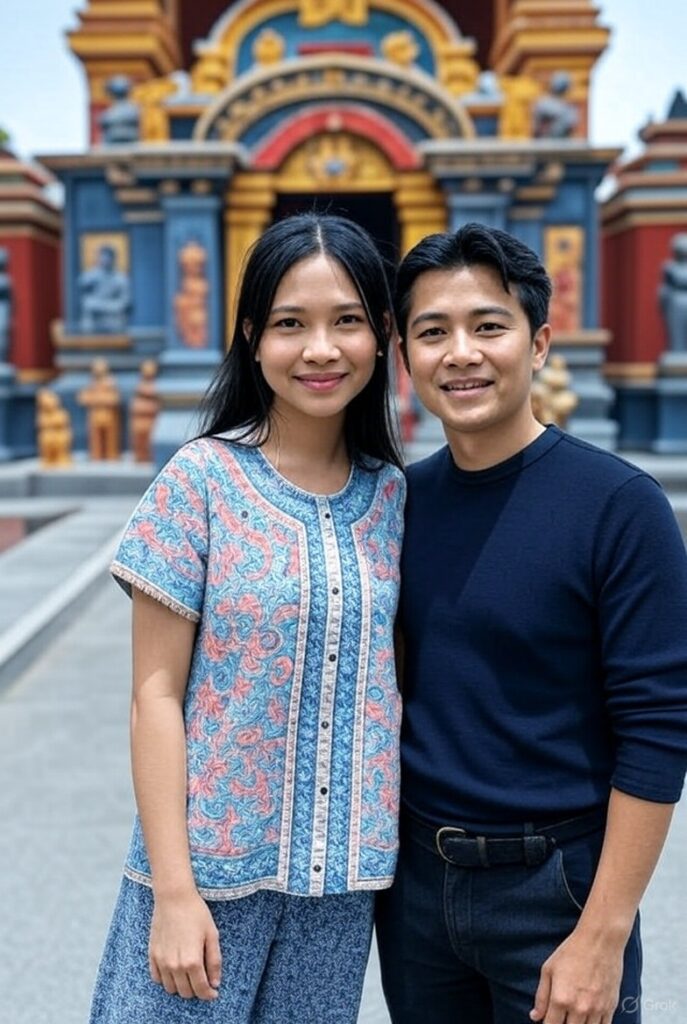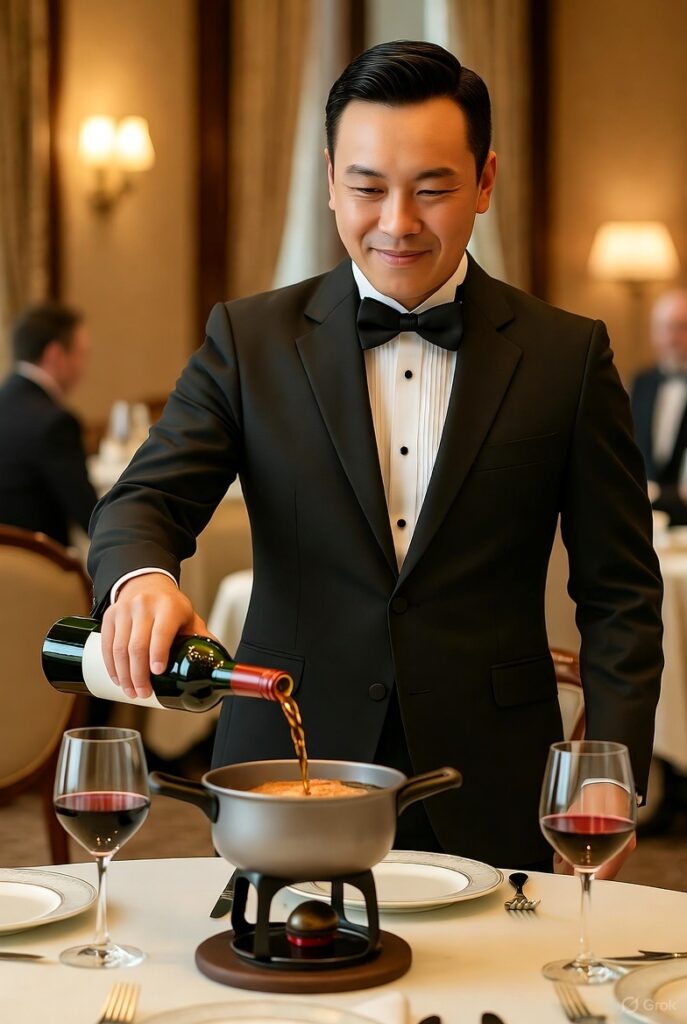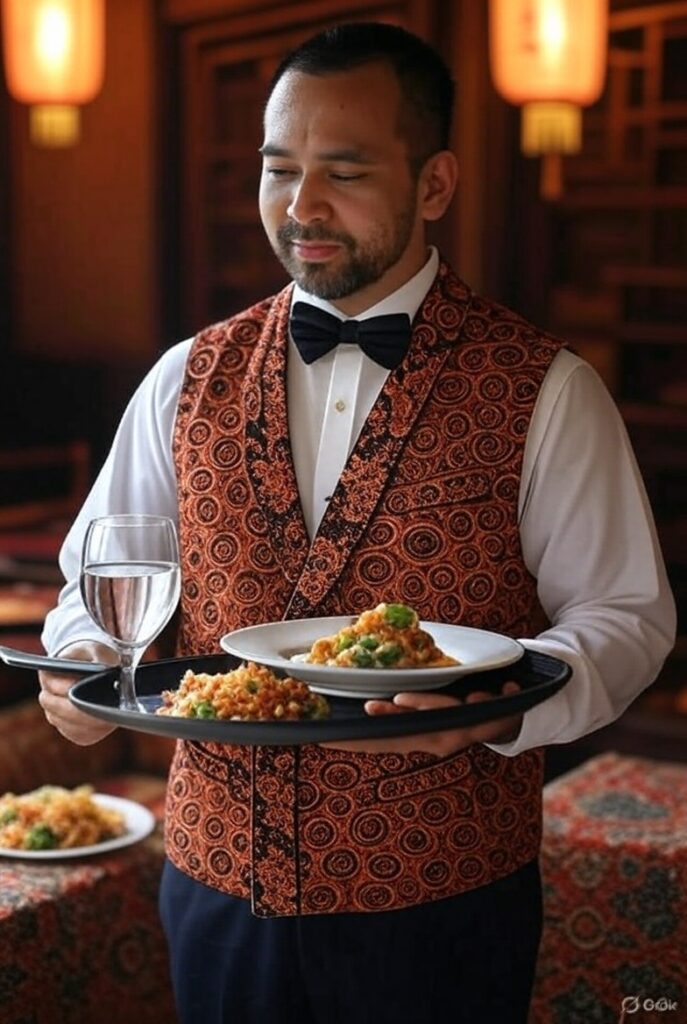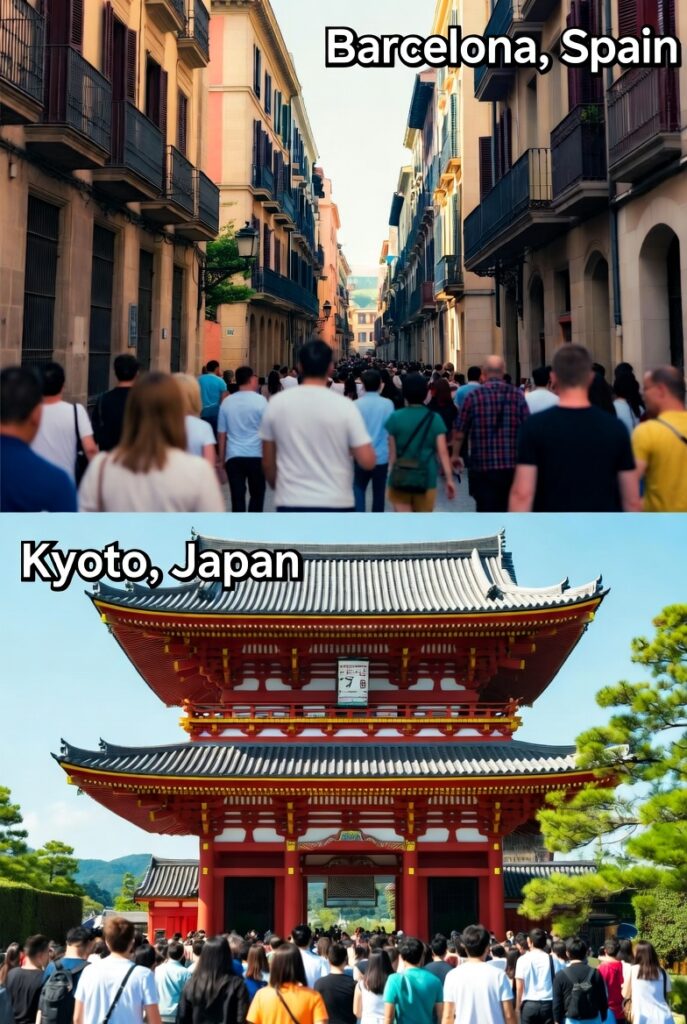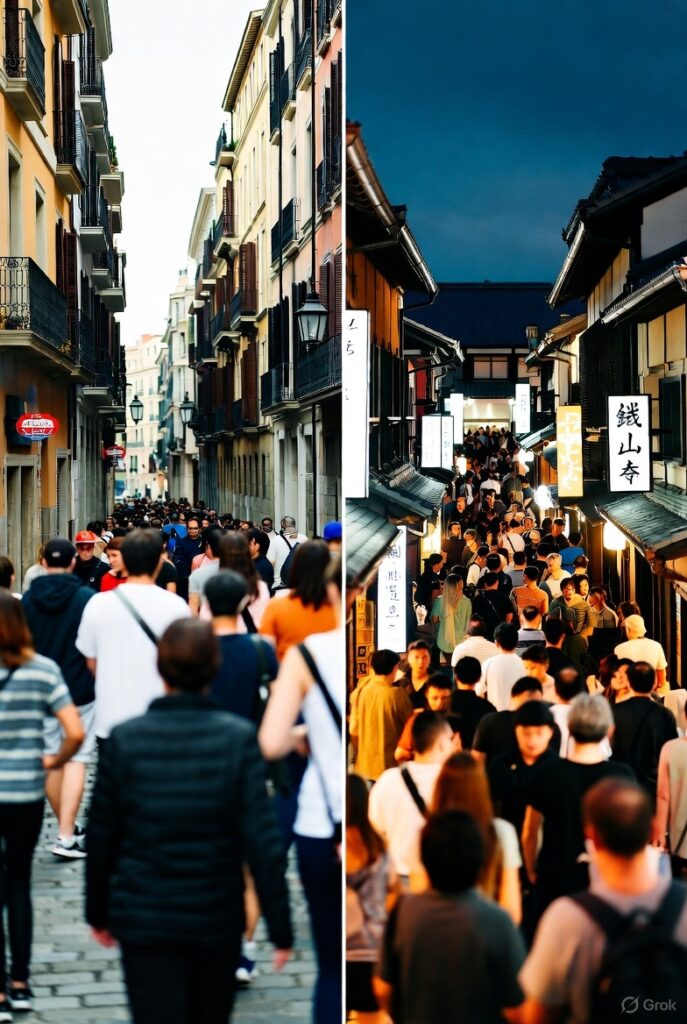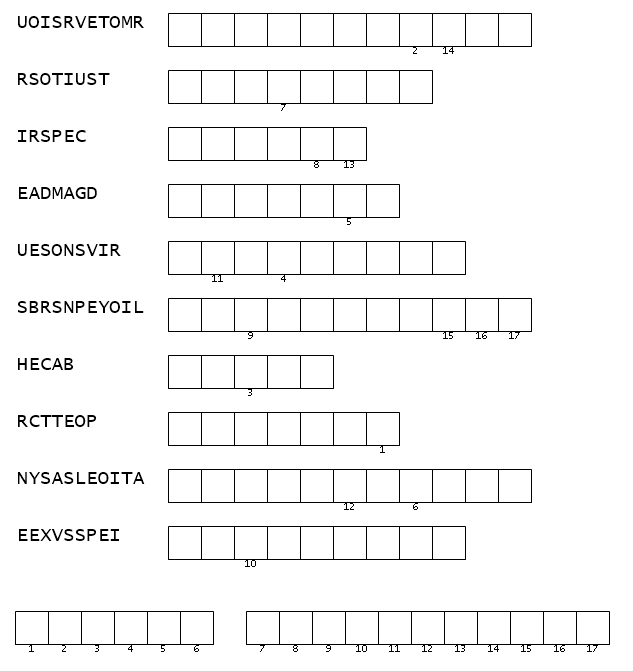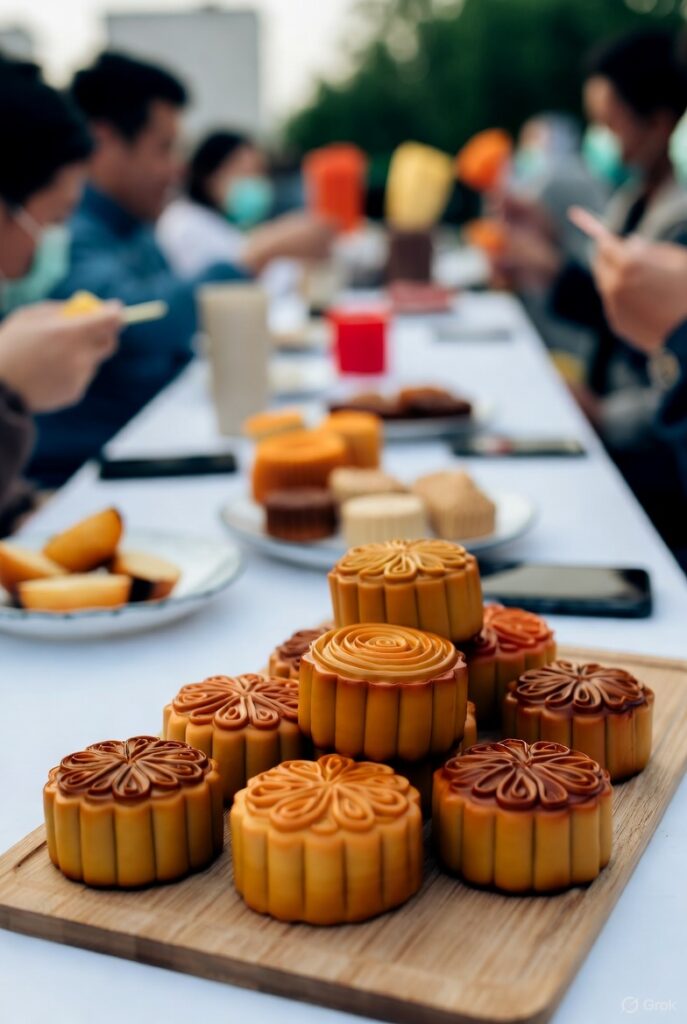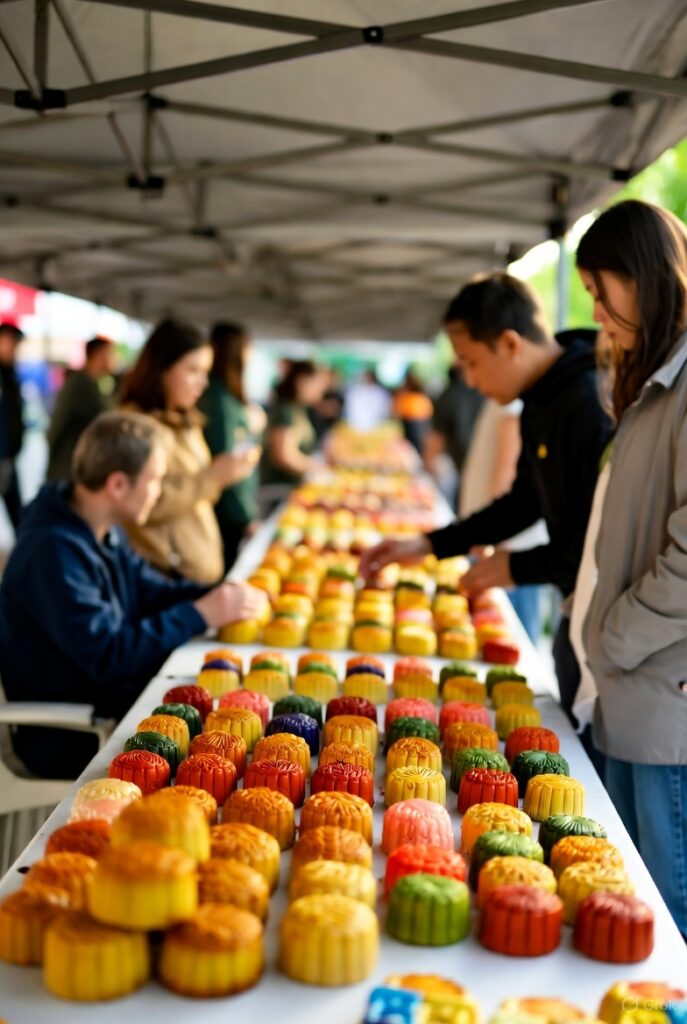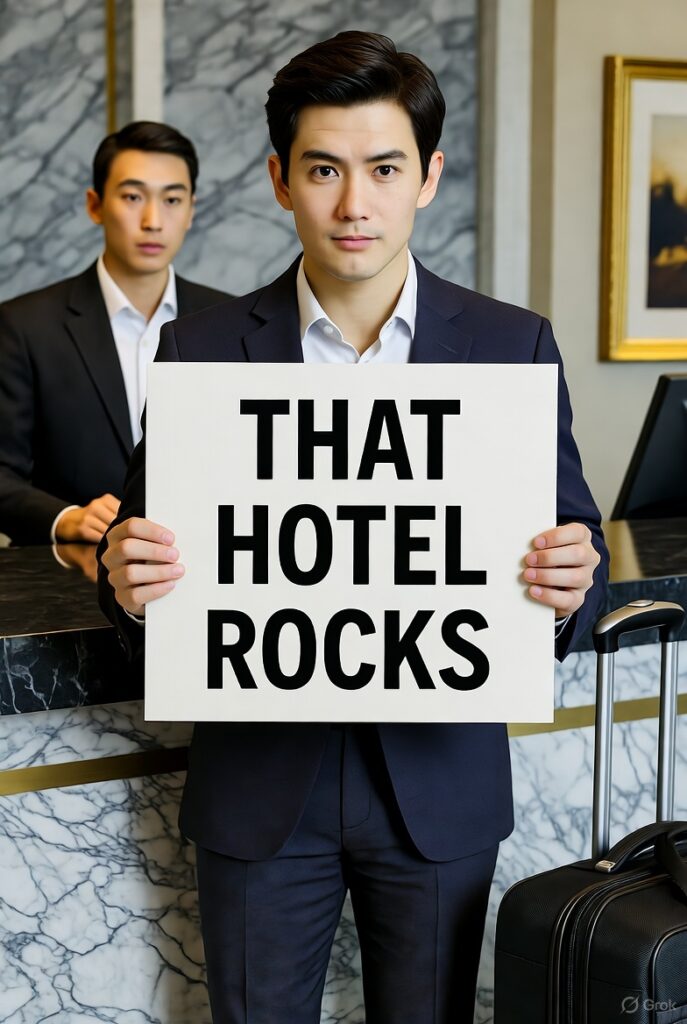Today Oum is in a top position in a five-star hotel, living her dream.
When she was a young girl. She went to a school for tourism. She was a beginner in English. English lessons were not easy for her, but she knew what she had to do to learn the language. She wanted to be successful and improve her English step by step.
Every day, Oum studied English at home and at school. She listened carefully in class and practiced speaking with her classmates. She read simple English books and listened to English songs. Sometimes, she watched videos in English to learn new words. She also wrote small texts in English to practice. Oum knew that learning a new language took time and patience, and she was ready to work hard.
She tried her best every day. She believed that if she kept practicing, she would improve her English. Oum was determined to become good at English because it would help her in her future career in tourism. She felt confident and motivated, and she never gave up.
________________________
Vocabulary:
- to be easy – simple; not difficult
Example: English is not easy for Oum. - a language – a system of words that people use to communicate
Example: Oum wants to learn a new language. - to be successful – to achieve your goals
Example: She wants to be successful in learning English. - to improve – to get better at something
Example: Oum practices every day to improve her English. - step by step – slowly, one step at a time
Example: She learns English step by step. - to listen carefully – to pay close attention when listening
Example: Oum listens carefully in class. - to practice speaking – to speak repeatedly to get better
Example: She practices speaking with her classmates. - a classmate – a student in the same class
Example: Oum talks to her classmates in English. - a simple English book – an easy book in English
Example: She reads a simple English book every day. - to watch a video – to look at a moving picture, often for learning
Example: Oum watches a video in English to learn new words. - to take time – to need a period to do something
Example: Learning English takes time. - patience – the ability to wait or continue without giving up
Example: Oum has patience when she studies. - to believe – to think something is true
Example: She believes she will improve. - to be determined – to want to do something and not give up
Example: Oum was determined to become good at English - to feel confident – to feel sure about yourself
Example: Oum feels confident when she practices English. - to be motivated – to want to do something and work hard
Example: She is motivated to learn English. - to give up – to stop trying
Example: Oum never gives up.
####################
| Infinitive ⇒ Past | Infinitive ⇒ Past | Infinitive ⇒ Past |
|---|---|---|
| be ⇒ was / were | believe ⇒ believed | feel ⇒ felt |
| become ⇒ became | give up ⇒ gave up | go ⇒ went |
| have to ⇒ had to | help ⇒ helped | improve ⇒ improved |
| keep ⇒ kept | know ⇒ knew | learn ⇒ learned |
| listen ⇒ listened | practice ⇒ practiced | read ⇒ read |
| speak ⇒ spoke | study ⇒ studied | take ⇒ took |
| try ⇒ tried | want ⇒ wanted | watch ⇒ watched |
| work ⇒ worked | write ⇒ wrote | determine =>determined |
##################
Past Simple – Regular Verbs
Rules:
- Most verbs: add -ed
play → played - Verbs ending in -e: add -d
live → lived - Verbs ending in consonant + y: change y to i and add -ed
study → studied - Short verbs ending in vowel + consonant: double the final consonant and add -ed
stop → stopped
Use:
The past simple is used to talk about finished actions in the past.
#################
List of irregluar verbs:
#####################

Basics in past simple:
| Personal Pronoun | Verb (Past) | Object |
|---|---|---|
| I | ate | apples |
| You | ate | apples |
| He | ate | apples |
| She | ate | apples |
| It | ate | apples |
| We | ate | apples |
| You (plural) | ate | apples |
| They | ate | apples |
| I | played | football |
| You | played | football |
| He | played | football |
| She | played | football |
| It | played | football |
| We | played | football |
| You (plural) | played | football |
| They | played | football |
| Personal Pronoun | Verb (Past Negative) | Object |
|---|---|---|
| I | did not eat | apples |
| You | did not eat | apples |
| He | did not eat | apples |
| She | did not eat | apples |
| It | did not eat | apples |
| We | did not eat | apples |
| You (plural) | did not eat | apples |
| They | did not eat | apples |
| I | did not play | football |
| You | did not play | football |
| He | did not play | football |
| She | did not play | football |
| It | did not play | football |
| We | did not play | football |
| You (plural) | did not play | football |
| They | did not play | football |
| Did + Pronoun | Verb | Object |
|---|---|---|
| Did I | eat | apples? |
| Did you | eat | apples? |
| Did he | eat | apples? |
| Did she | eat | apples? |
| Did it | eat | apples? |
| Did we | eat | apples? |
| Did you | eat | apples? |
| Did they | eat | apples? |
| Did I | play | football? |
| Did you | play | football? |
| Did he | play | football? |
| Did she | play | football? |
| Did it | play | football? |
| Did we | play | football? |
| Did you | play | football? |
| Did they | play | football? |
| Didn’t + Pronoun | Verb | Object |
|---|---|---|
| Didn’t I | eat | apples? |
| Didn’t you | eat | apples? |
| Didn’t he | eat | apples? |
| Didn’t she | eat | apples? |
| Didn’t it | eat | apples? |
| Didn’t we | eat | apples? |
| Didn’t you | eat | apples? |
| Didn’t they | eat | apples? |
| Didn’t I | play | football? |
| Didn’t you | play | football? |
| Didn’t he | play | football? |
| Didn’t she | play | football? |
| Didn’t it | play | football? |
| Didn’t we | play | football? |
| Didn’t you | play | football? |
| Didn’t they | play | football? |
Forms of ‚to be‘
| Personal Pronoun | Positive | Negative | Question |
|---|---|---|---|
| I | I was happy. | I was not happy. | Was I happy? |
| You (singular) | You were excited. | You were not excited. | Were you excited? |
| He | He was at home. | He was not at home. | Was he at home? |
| She | She was tired. | She was not tired. | Was she tired? |
| It | It was cold. | It was not cold. | Was it cold? |
| We | We were at the party. | We were not at the party. | Were we at the party? |
| You (plural) | You were friends. | You were not friends. | Were you friends? |
| They | They were in the garden. | They were not in the garden. | Were they in the garden? |
######################
Match the word with its correct definition
Words:
- to be easy
- a language
- to be successful
- to improve
- step by step
- to listen carefully
- to practice speaking
- a classmate
- a simple English book
- to watch a video
- to take time
- patience
- to believe
- to feel confident
- to be motivated
- to give up
Definitions:
A. A person in your class
B. To stop trying
C. To watch moving pictures, often for learning
D. To slowly do something, one part at a time
E. To feel sure about yourself
F. Easy; not difficult
G. To work hard to get better at speaking
H. A system of words people use to communicate
I. To think something is true
J. To get better at something
K. The ability to wait or continue without stopping
L. To need a period to do something
M. An easy book in English
N. To pay close attention when listening
O. To want to do something and work hard
P. To achieve your goals
______________________________
Answers:
1→F, 2→H, 3→P, 4→J, 5→D,
6→N, 7→G, 8→A, 9→M, 10→C,
11→L, 12→K, 13→I, 14→E,
15→O, 16→B
__________________
Correct version:
- to be easy – easy; not difficult
- a language – a system of words people use to communicate
- to be successful – to achieve your goals
- to improve – to get better at something
- step by step – to slowly do something, one part at a time
- to listen carefully – to pay close attention when listening
- to practice speaking – to work hard to get better at speaking
- a classmate – a person in your class
- a simple English book – an easy book in English
- to watch a video – to watch moving pictures, often for learning
- to take time – to need a period to do something
- patience – the ability to wait or continue without stopping
- to believe – to think something is true
- to feel confident – to feel sure about yourself
- to be motivated – to want to do something and work hard
- to give up – to stop trying
######################
Rewrite the statements as questions:
- She studied English every day at home and at school.
YOU WRITE:
Did she study every day at home and at school? - She never practiced speaking with her classmates.
_____________________________ - She read simple English books.
_____________________________ - She gave up learning English.
_____________________________ - She wanted to become good at English for her future career in tourism.
_____________________________ - Oum was a young girl.
_____________________________ - She found English lessons very easy.
_____________________________ - She believed she would never improve her English.
_____________________________ - She went to a school for tourism.
_____________________________ - She watched videos in Spanish.
_____________________________ - English lessons were easy for her.
_____________________________ - She was a beginner in English.
_____________________________ - She listened carefully in class and practiced speaking with her classmates.
_____________________________ - She studied English only at school, not at home.
_____________________________
———————————-
Correct questions:
She never practiced speaking with her classmates.
Did she never practice speaking with her classmates?
She read simple English books.
Did she read simple English books?
She gave up learning English.
Did she give up learning English?
She wanted to become good at English for her future career in tourism.
Did she want to become good at English for her future career in tourism?
Oum was a young girl.
Was Oum a young girl?
She found English lessons very easy.
Did she find English lessons very easy?
She believed she would never improve her English.
Did she believe she would never improve her English?
She went to a school for tourism.
Did she go to a school for tourism?
She watched videos in Spanish.
Did she watch videos in Spanish?
English lessons were easy for her.
Were English lessons easy for her?
She was a beginner in English.
Was she a beginner in English?
She listened carefully in class and practiced speaking with her classmates.
Did she listen carefully in class and practice speaking with her classmates?
She studied English only at school, not at home.
Did she study English only at school, not at home?
######################
Make the following statements negative:
- Oum was an English teacher.
YOU WRITE:
Oum was not an English teacher. - She found English lessons easy.
______________________________ - She studied English only at school.
______________________________ - She practiced speaking alone.
______________________________ - She gave up learning English.
______________________________ - She wanted to stop being successful.
______________________________ - She spoke English fluently.
______________________________ - She listened only to French songs.
______________________________ - She watched videos in Spanish.
______________________________ - She thought learning English was quick.
______________________________ - She was an adult [a person who is fully grown and not a child] woman.
______________________________ - She read only difficult English books.
______________________________ - She wrote long essays in English.
______________________________ - She was motivated.
______________________________
—————————-
Correct answers:
- Oum was not an English teacher.
- She did not find English lessons easy.
- She did not study English only at school.
- She did not practice speaking alone.
- She did not give up learning English.
- She did not want to stop being successful.
- She did not speak English fluently.
- She did not listen only to French songs.
- She did not watch videos in Spanish.
- She did not think learning English was quick.
- She was not an adult woman.
- She did not read only difficult English books.
- She did not write long essays in English.
- She was not motivated.
######################
What is correct?
Was Oum a young girl or an old lady?
Did Oum go to a school for tourism or a school for music?
Was Oum a beginner in English or an expert?
Were English lessons easy or not easy for Oum?
Did Oum study English every day or once a week?
Did she listen carefully in class or sleep in class?
Did she practice speaking with classmates or alone every day?
Did Oum read English books or French books?
Did she listen to English songs or Spanish songs?
Did learning a new language take time or happen very fast?
Was Oum patient and did she work hard or was she impatient and stopped easily?
Did she believe she would improve or think she could not improve?
Was Oum determined to become good at English or give up?
Did learning English help her in her future career or only help her friends?
######################
Correct answers:
Oum was a young girl.
She went to a school for tourism.
She was a beginner in English.
English lessons were not easy for Oum.
Oum studied English every day.
She listened carefully in class.
She practiced speaking with her classmates.
Oum read English books.
She listened to English songs.
Learning a new language took time.
Oum was patient and worked hard.
She believed she would improve.
Oum was determined to become good at English.
Learning English helped her in her future career.
######################
Short answers in past simple:
| Question | Short Answer (Yes/Positive) | Short Answer (No/Negative) |
|---|---|---|
| Did she check reservations? | Yes, she did. | No, she didn’t. |
| Did she give keys to guests? | Yes, she did. | No, she didn’t. |
| Did she talk to many guests? | Yes, she did. | No, she didn’t. |
| Was she happy? | Yes, she was. | No, she wasn’t. |
| Were the guests satisfied? | Yes, they were. | No, they weren’t. |
###################
Provide short answers:
She practiced speaking with her classmates.
YOU WRITE:
No, she didn’t.
Oum went to a school for music.
_________________________
She was patient.
_________________________
She read only French books.
_________________________
She listened carefully in class.
_________________________
English lessons were very easy for her.
_________________________
Oum was a young girl.
_________________________
She gave up when English was difficult.
_________________________
She went to a school for tourism.
_________________________
She listened to Spanish songs.
_________________________
She studied English every day.
_________________________
Learning a new language was very fast.
_________________________
She was a beginner in English.
_________________________
————————–
Correct answers:
Oum went to a school for music.
No, she didn’t.
She was patient.
Yes, she was.
She read only French books.
No, she didn’t.
She listened carefully in class.
Yes, she did.
English lessons were very easy for her.
No, they weren’t.
Oum was a young girl.
Yes, she was.
She gave up when English was difficult.
No, she didn’t.
She went to a school for tourism.
Yes, she did.
She listened to Spanish songs.
No, she didn’t.
She studied English every day.
Yes, she did.
Learning a new language was very fast.
No, it wasn’t.
She was a beginner in English.
Yes, she was.
#####################
Give a short answer, then the corrected statement:
- Oum went to a school for music.
YOU WRITE:
No, she didn’t. She went to a school for tourism. - She was an expert in English.
___________________________ - English lessons were very easy for her.
___________________________ - She studied English only once a week.
___________________________ - Oum slept in class.
___________________________ - She practiced speaking alone every day.
___________________________ - She read only French books.
___________________________ - Oum listened to Spanish songs.
___________________________ - Learning a new language was very fast.
___________________________ - She stopped studying English every day.
___________________________ - She thought she learned English without effort.
___________________________ - Oum was interested in Spanish.
___________________________ - Learning English only helped her friends.
___________________________ - She played games instead of studying English.
___________________________
——————————-
Correct answers:
- Oum went to a school for music.
No, she didn’t.
Oum went to a school for tourism. - She was an expert in English.
No, she wasn’t.
She was a beginner in English. - English lessons were very easy for her.
No, they weren’t.
English lessons were not easy for her. - She studied English only once a week.
No, she didn’t.
She studied English every day. - Oum slept in class.
No, she didn’t.
She listened carefully in class. - She practiced speaking alone every day.
No, she didn’t.
She practiced speaking with her classmates. - She read only French books.
No, she didn’t.
She read English books. - Oum listened to Spanish songs.
No, she didn’t.
She listened to English songs. - Learning a new language was very fast.
No, it wasn’t.
Learning a new language took time. - She stopped studying English every day.
No, she didn’t.
She studied English every day. - She thought she learned English without effort.
No, she didn’t.
She knew learning English required effort. - Oum was interested in Spanish.
No, she wasn’t.
She was interested in English. - Learning English only helped her friends.
No, it didn’t.
Learning English helped her in her future career. - She played games instead of studying English.
No, she didn’t.
She worked hard to study English.
################
Interview with Oum about when she was a child:
Interviewer: Hi Oum! Can you tell us about yourself when you were 13?
Oum: Yes! I was a young girl and I went to a school for tourism.
1. Interviewer: Who did you study English with?
Oum: I studied English with my classmates.
2. Interviewer: What books did you read?
Oum: I read simple English books.
3. Interviewer: Where did you study English every day?
Oum: I studied English at home and at school.
4. Interviewer: When did you practice speaking English?
Oum: I practiced speaking every day, in class and at home.
5. Interviewer: Why did you want to learn English?
Oum: I wanted to be successful and have a career in tourism.
6. Interviewer: How did you learn new words?
Oum: I listened to English songs and watched videos in English.
7. Interviewer: Who helped you when English was difficult?
Oum: My classmates and my teacher helped me.
8. Interviewer: What did you do when you found lessons hard?
Oum: I worked hard and tried my best.
9. Interviewer: How did you feel when learning English?
Oum: I felt confident and motivated.
10. Interviewer: When did you know learning English took time?
Oum: I knew it took time at the beginning of my studies.
11. Interviewer: Why didn’t you give up?
Oum: I didn’t give up because I wanted to improve step by step.
12. Interviewer: Who inspired you to keep learning?
Oum: My teacher and my friends inspired me.
###################
Match the questions with the correct answers:
Questions
- Who did you study English with when you were 13?
- What kind of school did you go to?
- Where did you study English every day?
- When did you practice speaking English?
- Why did you want to learn English?
- How did you learn new words?
- Who helped you when English was difficult?
- What did you do when lessons were hard?
- How did you feel while learning English?
- When did you realize learning English takes time?
- Why didn’t you give up learning English?
- Who inspired you to keep learning English?
Answers
A. I listened to English songs and watched videos in English.
B. I studied English with my classmates.
C. I practiced speaking every day, at home and in class.
D. My teacher and my friends inspired me.
E. I went to a school for tourism.
F. I worked hard and tried my best when lessons were difficult.
G. I felt confident and motivated while learning English.
H. I studied English at home and at school every day.
I. My classmates and my teacher helped me when English was hard.
J. I wanted to be successful and have a career in tourism.
K. I didn’t give up because I wanted to improve step by step.
L. I realized learning English took time at the beginning of my studies.
Answer Key
1-B, 2-E, 3-H, 4-C, 5-J, 6-A, 7-I, 8-F, 9-G, 10-L, 11-K, 12-D
————————————-
Correct dialogue:
Interviewer: Who did you study English with when you were 13?
Oum: I studied English with my classmates.
Interviewer: What kind of school did you go to?
Oum: I went to a school for tourism.
Interviewer: Where did you study English every day?
Oum: I studied English at home and at school every day.
Interviewer: When did you practice speaking English?
Oum: I practiced speaking every day, at home and in class.
Interviewer: Why did you want to learn English?
Oum: I wanted to be successful and have a career in tourism.
Interviewer: How did you learn new words?
Oum: I listened to English songs and watched videos in English.
Interviewer: Who helped you when English was difficult?
Oum: My classmates and my teacher helped me when English was hard.
Interviewer: What did you do when lessons were hard?
Oum: I worked hard and tried my best when lessons were difficult.
Interviewer: How did you feel while learning English?
Oum: I felt confident and motivated while learning English.
Interviewer: When did you realize learning English takes time?
Oum: I realized learning English took time at the beginning of my studies.
Interviewer: Why didn’t you give up learning English?
Oum: I didn’t give up because I wanted to improve step by step.
Interviewer: Who inspired you to keep learning English?
Oum: My teacher and my friends inspired me.
#################



